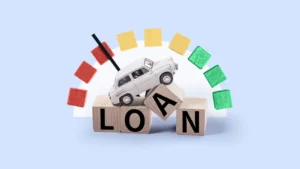As a freelancer or self-employed person, getting auto financing can be tricky because your income is unstable and there aren’t many standard proofs of income. Since freelancers don’t have the usual W-2 forms or pay stubs, they have to be more strategic when applying for auto loans to ensure they get the right terms. By understanding the important steps and criteria, freelancers can find the best way to get the money they need. Here are some helpful tips to help you get a car loan as an employee.
Gather Key Financial Information:
Working as a freelancer or self-employed person requires additional proof of income. Lenders often ask for your most recent tax returns, bank statements, and perhaps even customer invoices to see if your income is stable and consistent. To make your case stronger, have your tax returns from the past two years and bank statements from the past twelve months ready. Keeping this information up to date can help lenders see that you have enough money to make regular payments, even if your income changes. Sending a well-organized document can speed up the process and increase your chances of being accepted.
Improve Your Credit Score Before You Apply:
Freelancers often use credit scores instead of proof of a steady income. If your credit score is good, you have a better chance of getting a low-interest loan. In the months before you apply for a car loan, you may want to improve your score by paying off your bills and making payments on time. Try not to make new credit applications before you apply, as these inquiries can quickly lower your score. Improving your credit score shows lenders that you can manage your money, which can alleviate their concerns about your unpredictable income.
Set a Realistic Budget Based on Your Monthly Income:
Freelancers need to create a budget because their income changes each month. Experts say that car expenses, such as loan payments, insurance, and gas, should ideally make up 15 to 20 percent of your monthly income. To create a budget, first add up all the money you’ve earned in the past year to figure out your average monthly income. During the months when you’re not making much money, you can have more peace of mind by putting money into an emergency fund to make a car payment. This way, you can be sure that you’ll be able to meet your financial obligations even if your income drops slightly.
Other Ways to Get Financing Besides the Dealership:
There are many ways for freelancers to get financing, including through banks, credit unions, and online loans. Credit unions and online lenders may be less strict about showing proof of income, and their interest rates can be competitive. Some even offer loan products specifically tailored to freelancers and the self-employed. There are also many lenders that offer pre-qualification tools that let you see loan terms and interest rates without affecting your credit score. Prequalification can give you an idea of the loan amount and interest rate you can expect. This will give you a head start on negotiations and a clear picture of your budget before you start shopping.
Consider Making a Large Down Payment:
A larger down payment can help you get better terms and lower your loan amount. If possible, pay about 20% of the car price up front. However, even a small amount can be helpful. If your income changes, a larger down payment can help because it means your monthly payments will be smaller. A large down payment can also increase your chances of being approved by certain lenders because it shows you are more committed to the loan and reduces the lender’s risk.
Choose the Loan Term that Best Fits Your Income:
Freelancers should consider monthly payments and total interest costs when choosing a loan term. Longer terms may look good because they mean lower monthly payments, but in the long run, they usually mean higher total interest payments. A loan term of three to five years is usually the best length for freelancers, as it allows for a good mix between manageable monthly payments and total cost. This way, you avoid the higher interest rates that come with longer terms while still meeting your monthly payments.
Get Pre-Approved to Improve Your Negotiating Position:
Pre-approval can give freelancers an advantage before they go to a dealership. When you get pre-approved, you know your interest rate, loan amount, and monthly payments up front. This allows you to focus on negotiating the price of the car, rather than the details of the loan. Lenders that offer pre-approval will usually review your financial documents and credit score up front. This makes the process clear and gives you more leverage as a buyer. When you have financing in place, companies know that you are a serious buyer. This can help you get a better deal and make the buying process easier.
Be Aware of Extras and Added Costs at the Parking Lot:
When you get a loan from a retailer, be aware of extra costs that can be added to the loan, such as extended warranties, gap insurance, and maintenance packages. These factors make the loan more expensive. Some add-ons can be helpful, but you should consider the cost and make sure they fit within your budget. For freelancers, it’s usually best to stick to modest loan amounts, so only add add-ons if absolutely necessary.
Read the Financing Agreement Carefully:
Once you’ve got everything sorted out on the financial side, read the contract carefully to make sure you understand all of the terms. A financing agreement will detail the interest rate, the term of the loan, the monthly payments, and the fees for late or overdue payments. Some deals may also include a prepayment penalty, which means you’ll have to pay a fee if you pay off your loan early. Since personal income isn’t always stable, these fees can increase if you want to pay early during the months when you earn more money. If you’re unsure about anything in the deal, it’s best to consult a financial advisor before signing.
Conclusion:
Getting car financing as a freelancer or self-employed person can be easy and very rewarding if you know what you’re doing and prepare yourself. Freelancers can find the financing plan that works for them by organizing their financial documents, improving their credit scores, developing a reasonable budget, researching flexible financing options, making a large down payment, choosing the right loan term, and getting pre-approved and staying ahead of the curve. Avoiding unnecessary fees and reading the contract carefully can help freelancers easily get a car loan and achieve their goal of owning a car without worrying about money.
FAQs:
1. What type of documentation does a freelancer need to get a car loan?
Freelancers need tax returns, bank statements, and sometimes invoices to prove they continue to earn money. These documents help lenders understand how stable your financial situation is.
2. How much should I save for a down payment?
It’s a good idea to make a down payment of 20% of the car’s price. This will lower your loan amount and monthly payments, and increase your chances of being approved.
3. Can workers with unstable incomes get loans?
Yes, workers can get money. Even if your income changes, keeping consistent financial records and creating a realistic budget can help you repay your loan.
4. Are there lenders that only offer loans to freelancers?
Some credit unions and online lenders offer loans specifically for self-employed workers. These loans often offer flexible ways to prove income and good terms.
5. Does pre-approval help freelance workers?
Getting pre-approved is very helpful because it gives freelancers a set budget and more negotiating power, making the buying process easier and more predictable.




